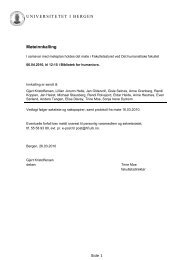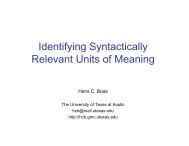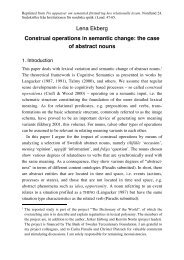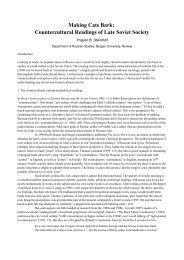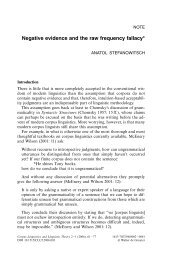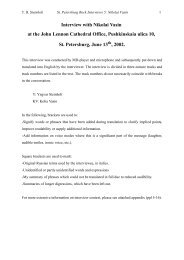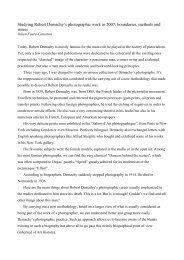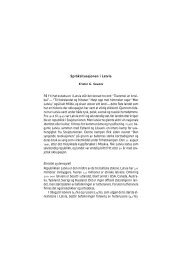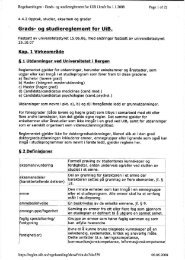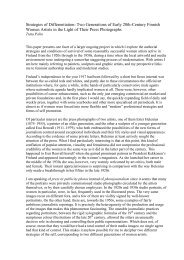THE BOOK OF POEMS IN TWENTIETH-CENTURY ... - TopReferat
THE BOOK OF POEMS IN TWENTIETH-CENTURY ... - TopReferat
THE BOOK OF POEMS IN TWENTIETH-CENTURY ... - TopReferat
Create successful ePaper yourself
Turn your PDF publications into a flip-book with our unique Google optimized e-Paper software.
state of "равнодушие"—an equilibrium of the soul. 166<br />
Her struggle is over, she has<br />
achieved the spiritual balance which she has sought throughout her life. 167<br />
As Gippius wrote in the third poem of Сияния, "Мера," this sense of balance or<br />
measure is only attained by God: 168<br />
Всегда чего-нибудь нет,—<br />
Чего-нибудь слишком много...<br />
На всё как бы есть ответ—<br />
Но без последнего слога.<br />
..........................<br />
Ущерб, перехлест везде.<br />
А мера—только у Бога.<br />
Always something is lacking—<br />
There is always too much of something…<br />
It is as if there is an answer for everything—<br />
But without the final syllable.<br />
……………….<br />
Decline, overflow is everywhere.<br />
But only God has measure.<br />
The lyrical "я" of "Равнодушие," like God, has achieved this sense of measure. His<br />
spiritual journey is over. Gippius's, however, is not. In the seven poems which follow<br />
"Равнодушие," the poet will continue to struggle with the same issues of eternity, faith,<br />
and despair. The poet will encounter difficulties in "Сложности"; she will experience a<br />
166 In the rough draft of the poem, Gippius offered a variation on the sixth line of the sixth stanza, later<br />
scratched out, which supports this positive reading of "равнодушие": instead of "Неответен—и<br />
равнодушен," she wrote "Безболезненно-равнодушен."<br />
167 Matich claims the poem as a final victory over the devil but does not explicitly address the issue of<br />
indifference. Matich, Paradox, 94. She does address the theme of indifference to death in relation to<br />
Gippius's final poem, dictated to Zlobin on her death bed: По лестнице...ступени все воздушней/Бегут<br />
наверх иль вниз—не все ль равно!/И с каждым шагом сердце равнодушней/И все, что было—было<br />
так давно. Matich claims that such indifference "is a product of Gippius's inability to struggle, desire or<br />
accept. It is a state which, as we know, Gippius feared the most because it is associated with the abrogation<br />
of her will." Ibid, 107. According to Matich, Gippius is not reconciled with her death. In my opinion, this<br />
final poem expresses neither reconciliation nor indifference to death, but rather the actual experience of<br />
death. The poet is, in fact, dying, and as she dies her heart becomes more and more balanced, coming<br />
closer and closer to heavenly equilibrium. Her past is a distant memory because she is entering into<br />
another form of existence.<br />
168 For more on Gippius's notion of balance, see Zinaida Gippius, "Выбор?," Vozrozhdeniie 222 (June<br />
1970): 58-77.<br />
128



